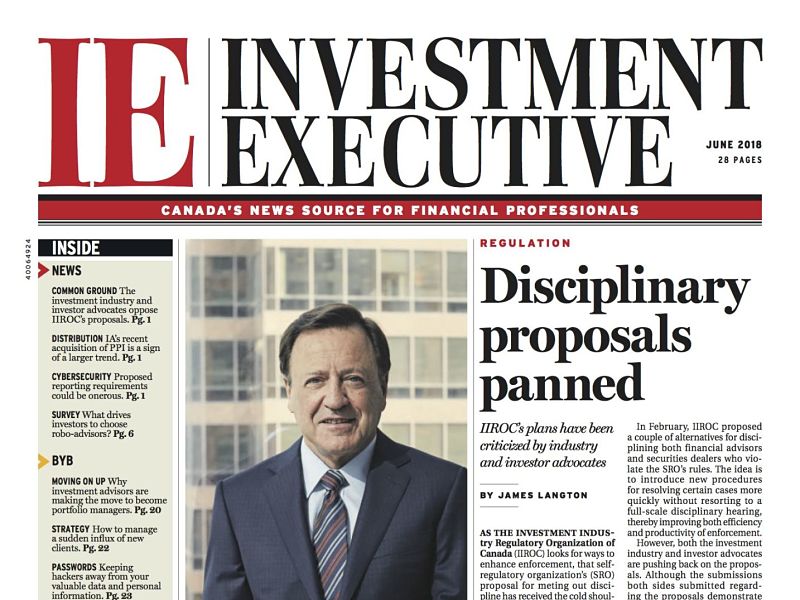
Quebec city-based industrial Alliance Insurance and Financial Services Inc.’s (IA) recent acquisitions of some managing general agencies (MGAs) is not only an expansion of the insurer’s distribution footprint, but is the latest example of insurance product manufacturers taking ownership of independent distribution. This trend could reshape the financial advisory landscape for years to come.
“It’s conceivable that we could almost be a type of career agent again, like we were [years ago], within the next decade or so,” says Jerry Littman, certified financial planner and co-owner of Foresight Financial Services Inc. in Calgary, which operates under the umbrella of PPI Solutions Inc., a Calgary-based MGA.
In fact, IA announced in late February that it had acquired PPI Solutions’ parent firm, Toronto-based PPI Management Inc., which operates two independent life insurance distribution networks comprising more than 3,000 advisors across Canada. PPI’s two MGAs – PPI Solutions and Toronto-based PPI Advisory – will continue to operate as independent brokerages, according to IA, with no changes to advisors’ day-to-day operations.
IA subsequently acquired a Calgary-based MGA, ABEX Brokerage Services Inc., as well as that MGA’s Surrey, B.C.-based subsidiary, ABEX National Brokerage Inc., in April. Those companies, IA said, will be integrated into PPI’s MGAs.
“Our strategy is to grow on the distribution side,” says Denis Ricard, chief operating officer at IA. “Developing distribution has been a real strength of [IA] that distinguished [the firm] from others in the [life insurance] industry.”
IA operates a career sales force in Quebec, and the firm is not new to the independent insurance distribution business, either. A decade ago, IA acquired another MGA, National Financial Insurance Agency Inc. (NFIA), then expanded that unit over time by acquiring other MGAs.
However, Ricard says, until now, IA’s MGA operations primarily have been a defensive strategy to protect some of IA’s business with small MGAs that didn’t have a succession plan.
IA re-evaluated its strategy last year after Winnipeg-based Great-West Life Assurance Co. (GWL) acquired Kitchener, Ont.-based Financial Horizons Group Inc. – one of Canada’s largest MGAs. That deal, Ricard says, was a “game changer” for the industry.
“We had to ask ourselves at that point: ‘Do we want to be a bit more aggressive in terms of buying distribution?'” Ricard says. “And the decision was made at the time to do it.”
PPI was an ideal fit for IA, Ricard adds, as the firms worked together in the past, including collaborating on the design of EquiBuild, a permanent life insurance product that combines features of whole life and universal life, in 2015.
PPI’s operations eventually will be merged with NFIA, Ricard says, and PPI’s management team will be responsible for overseeing IA’s entire MGA operation.
“The depth of knowledge in the management at PPI is among the top in Canada,” he says.
Canadian insurers’ foray into the MGA space comes amid rapid consolidation among MGAs, which is driven by factors such as rising compliance costs and aging owners who are preparing to retire. Against that backdrop, companies such as IA and GWL probably see opportunities to be consolidators, says Paul Holden, a financials stock analyst with CIBC World Markets Inc. in Toronto.
“The amount of business that flows to the larger MGAs should increase,” Holden says, “so, getting involved as an owner of one of those larger MGAs makes sense.”
Although IA states its growing network of independent insurance advisors will be free to sell any insurer’s products, Holden says, IA could have some influence on those sales: “I look at a variety of industries, and where I see the vertical integration of product manufacturing and distribution, keeping the distribution 100% independent is rare. I think, naturally, there is a tendency to have some influence there.”
Richard Gilbert, president of Mississauga, Ont.-based Megacorp Insurance Agencies Inc., says he’s concerned about the trend toward insurance carriers owning MGAs because “it’s a major conflict of interest.”
Littman, however, says he’s not worried about his independence, as he has been assured that he can continue selling other companies’ products. He believes the change in ownership at PPI Solutions is simply a business decision driven by the growing cost of doing business.
“I’m sure, at the end of it all, [this was motivated by] the heavy cost of compliance,” Littman says. “It’s a challenge every single day.”
Littman anticipates that IA’s ownership of PPI will pave the way for PPI to get more involved in the design of life insurance products: “[PPI has] always thought outside the box. What the [firm] comes up with next will be fun to see.”
Even as IA expands its insurance distribution, Ricard acknowledges that Canada’s life insurance industry is mature and facing a variety of challenges, including regulatory and accounting changes: “There are some clouds surrounding individual life insurance in Canada.”
Accordingly, IA will continue expanding its wealth-management business, Ricard adds: “It’s a movement toward a business that at the end of the day, has more potential for growth.”
IA’s acquisition of Toronto-based HollisWealth Inc. from Toronto-based Bank of Nova Scotia in August 2017, was “transformative” in growing IA’s assets under administration and establishing a major wealth-management network, Ricard says. (See the Dealers’ Report Card on pages 9 through 18.)
As IA expands, the firm is restructuring its operations. The new structure, which shareholders approved at IA’s annual general meeting in May, will include a newly established holding company named IA Financial Corp. Inc., which will wholly own IA.
Having a holding company will provide IA with more flexibility to execute its growth strategy, Ricard says. As Canada’s three biggest life insurers operate under similar structures, he says, the move will level the playing field.
“As we become a large organization, we thought having more flexibility in terms of where we want to raise capital would be better,” Ricard says, “whether it’s the operating company or the holding company.”